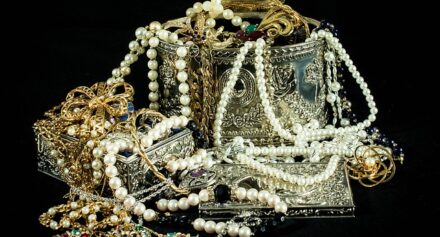According to the dictionary the word modesty can mean several different things and I chose the following:
1. free from ostentation or showy extravagance
2. having or showing regard for the decencies of behavior, speech, dress, etc.
Many women in the United Pentecostal Church will tell you they wear skirts and dresses for their own conviction on modesty not because of the teaching in their churches. That may be so but how can convictions be born without the teaching?
Many scriptures have been used to support their convictions from Deuteronomy 22:5 through 1 Timothy 2:9 and they have certainly been twisted to make their case for what they deem is proper attire for women.
I want to look at 1 Timothy 2:9 since this is a commonly quoted scripture to support their cause. This is a letter to Timothy from the Apostle Paul;
“I also want the women to dress modestly, with decency and propriety, adorning themselves, not with elaborate hairstyles or gold or pearls or expensive clothes,” 1 Timothy 2:9, NIV
This verse begins the second main section of chapter 2, which extends to the end of the chapter at verse 15. The theme is that of the role of women in Christian worship. When believers gather together, how should women function? The first statement made by Paul here uses the term hōsautōs, meaning “likewise.” Paul has just made mention of prayer and its importance. Women, therefore, are to share in similar godly actions as the men of the church. What Paul says here, then, is not a unique principle for women as much as a specific application for women.
Specifically, this refers to how women dressed and cared for their hair. Then, as now, church gatherings were not an appropriate time to dress seductively or for attention. Clothing styles vary, and tastes change based on time and culture. All the same, how women (and men) dress should be appropriate for worship of God.
Second, women were not to focus on “braided hair.” This is another comment requiring careful cultural understanding. Paul’s point is not that certain hairstyles are necessarily sinful; rather, the message and the motives are. In the culture of Ephesus, braided hair was a luxurious status symbol. In that era, it required much time and financial costs. This was the equivalent of modern hairstyles requiring significant time and cost. Those who put so much energy into hairstyles suggest that their emphasis is on themselves, rather than on worshiping God.
Further, Paul addresses fancy clothes and flashy jewelry. These items are mentioned because of the focus on using money on self rather than to help others (1 Timothy 6:10). Once again, no particular piece of jewelry, or clothing, is being called out as explicitly sinful. The message and effect have to be considered. Then, as now, worship services are not intended to be treated as a prom, social event, or a party where women—or men—”dress to impress.” These are times to worship God and focus on Him. Self-promoting clothes not only distract others from the point of a church gathering, they distract the one who is overly concerned with their appearance.
How many times have you been to any kind of UPC conference, whether it is ladies conference, district conference or general conference, and the women are dressed to impress in their designer clothes and shoes and their elaborate hairstyles as are the men in their $1,000 suits and gold watches and their Lincolns and Cadillacs?
Paul never mentions that women and men are dressed to distinguish between men and women. That is all made up rules of the UPC and twisting scripture to support it. But Paul does admonish those who spend a lot of money on their clothes and dress to impress others of their spirituality.
Taking into consideration of our culture and fashion changes, it doesn’t matter whether we wear a skirt or a pair of jeans as long as we are not dressing seductively or for attention. God wants our attention. He wants both men and women to be in prayer and worship focused on Him.



